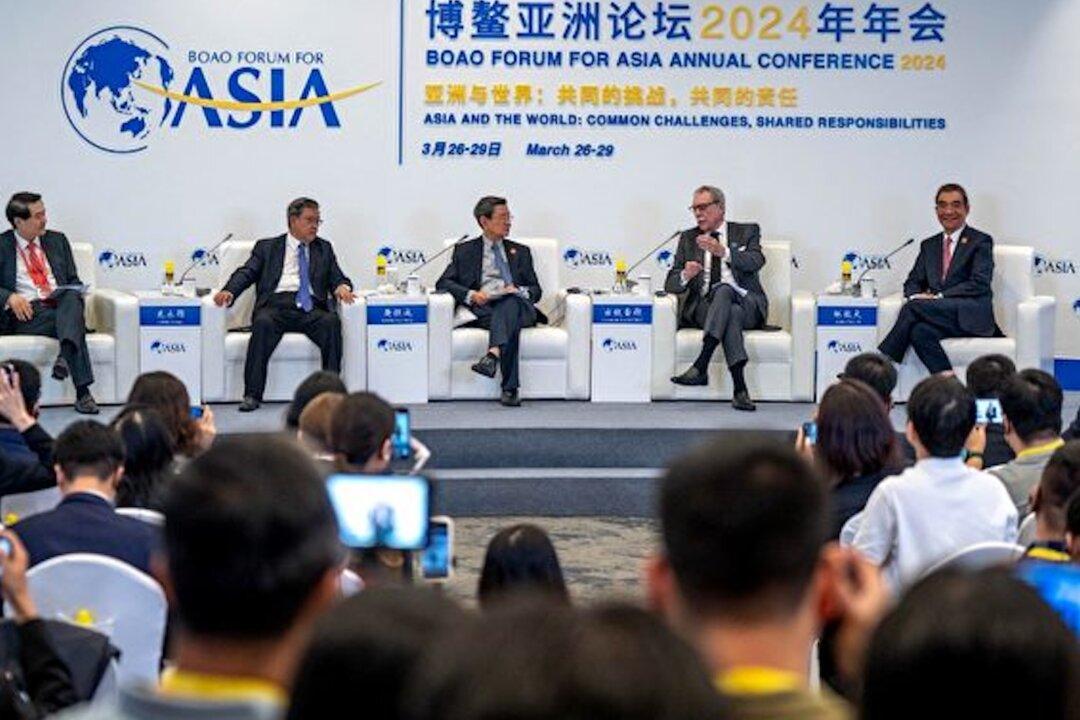Analysts say they’re still skeptical as the Chinese communist regime continued its rosy overtures at The Boao Forum for Asia 2024, which concluded on March 29.
Zhao Leji, head of the Chinese Communist Party’s (CCP’s) rubber-stamp legislature, called on Asia to “manage its own security” at the forum to counter U.S. efforts to strengthen alliances between liberal democracies in the region against authoritarian and totalitarian governments. Experts pointed out that, on the contrary, the CCP has been acting aggressively and jeopardizing peace in Asia, which will have a negative effect on the economic development of the region and the world.




